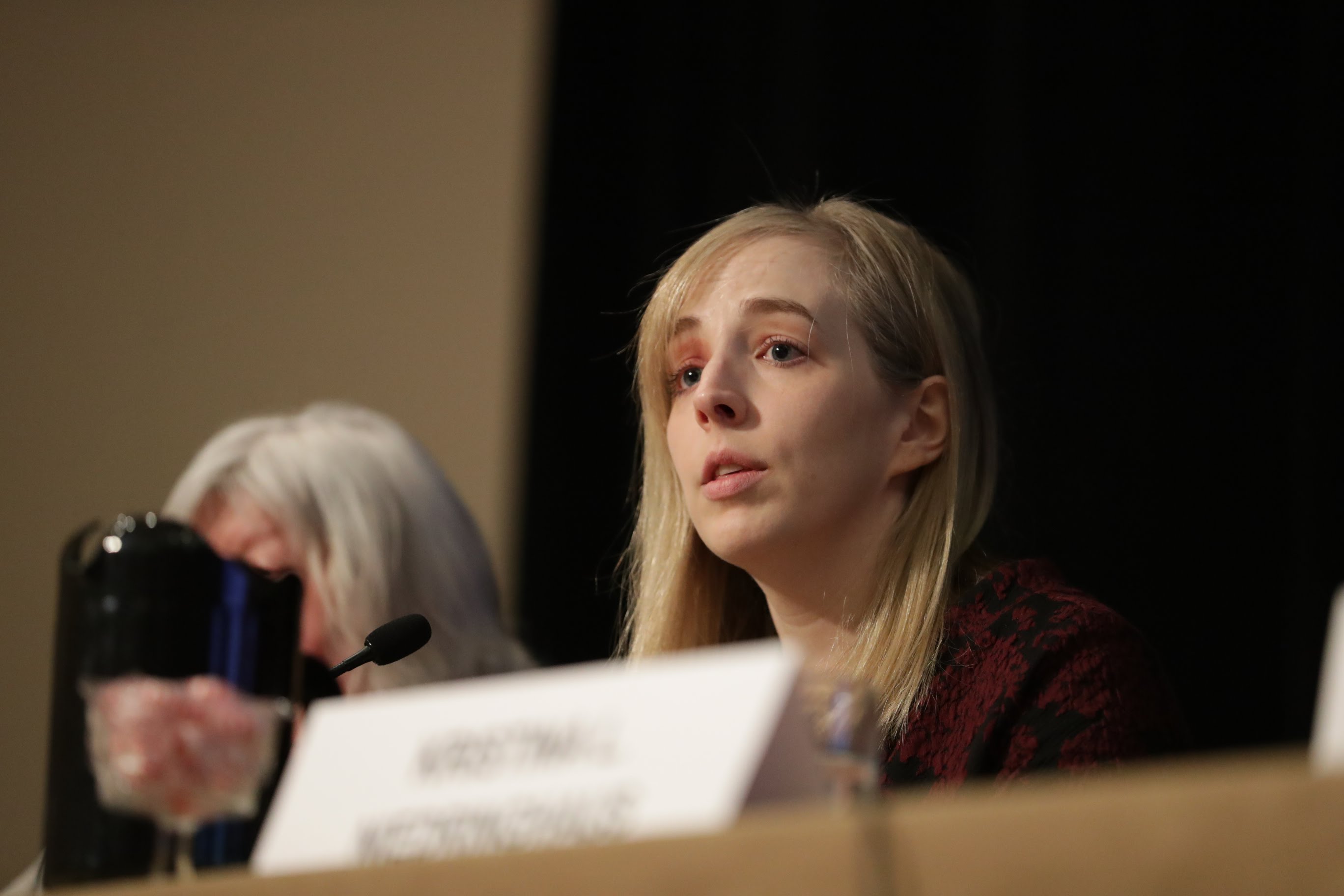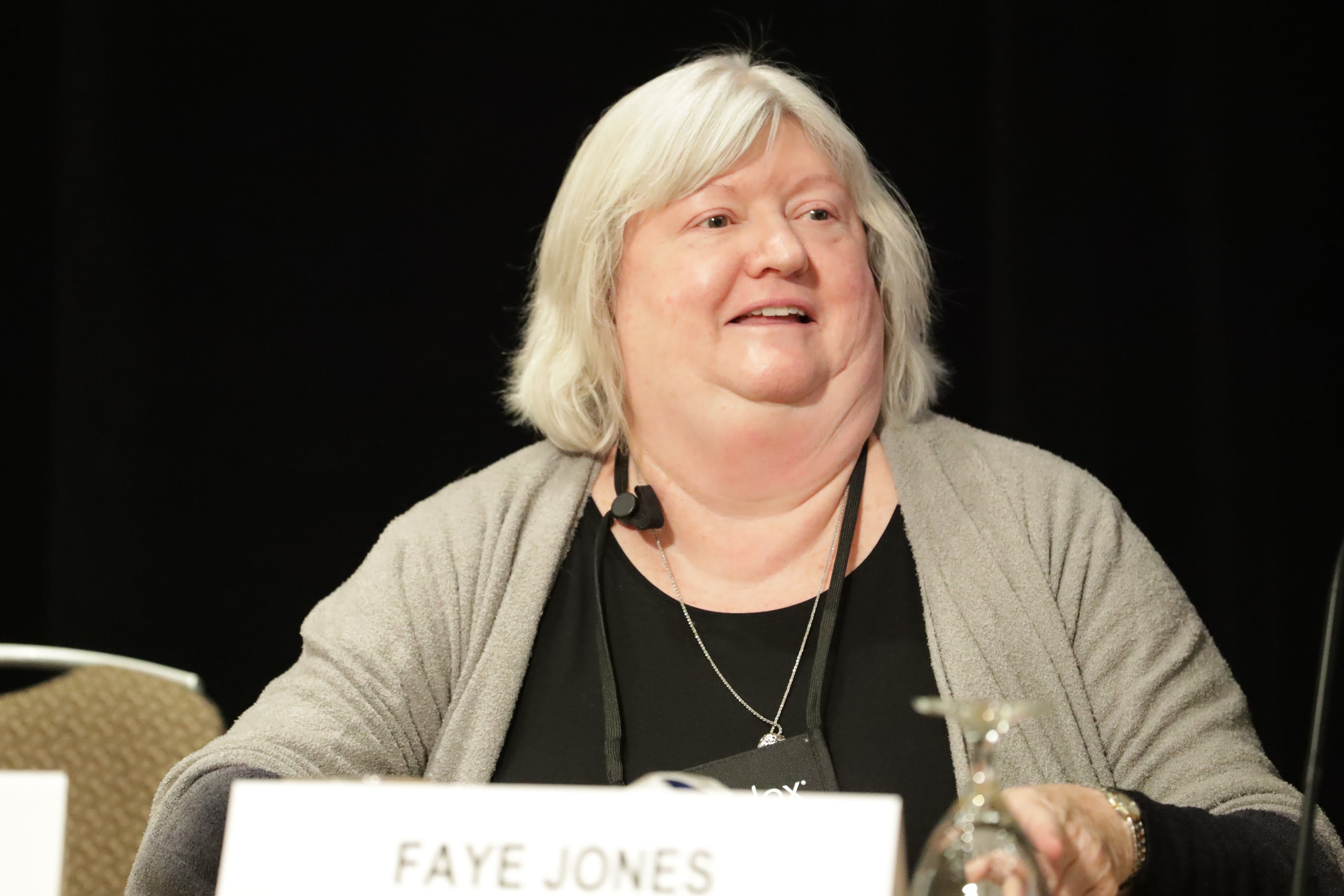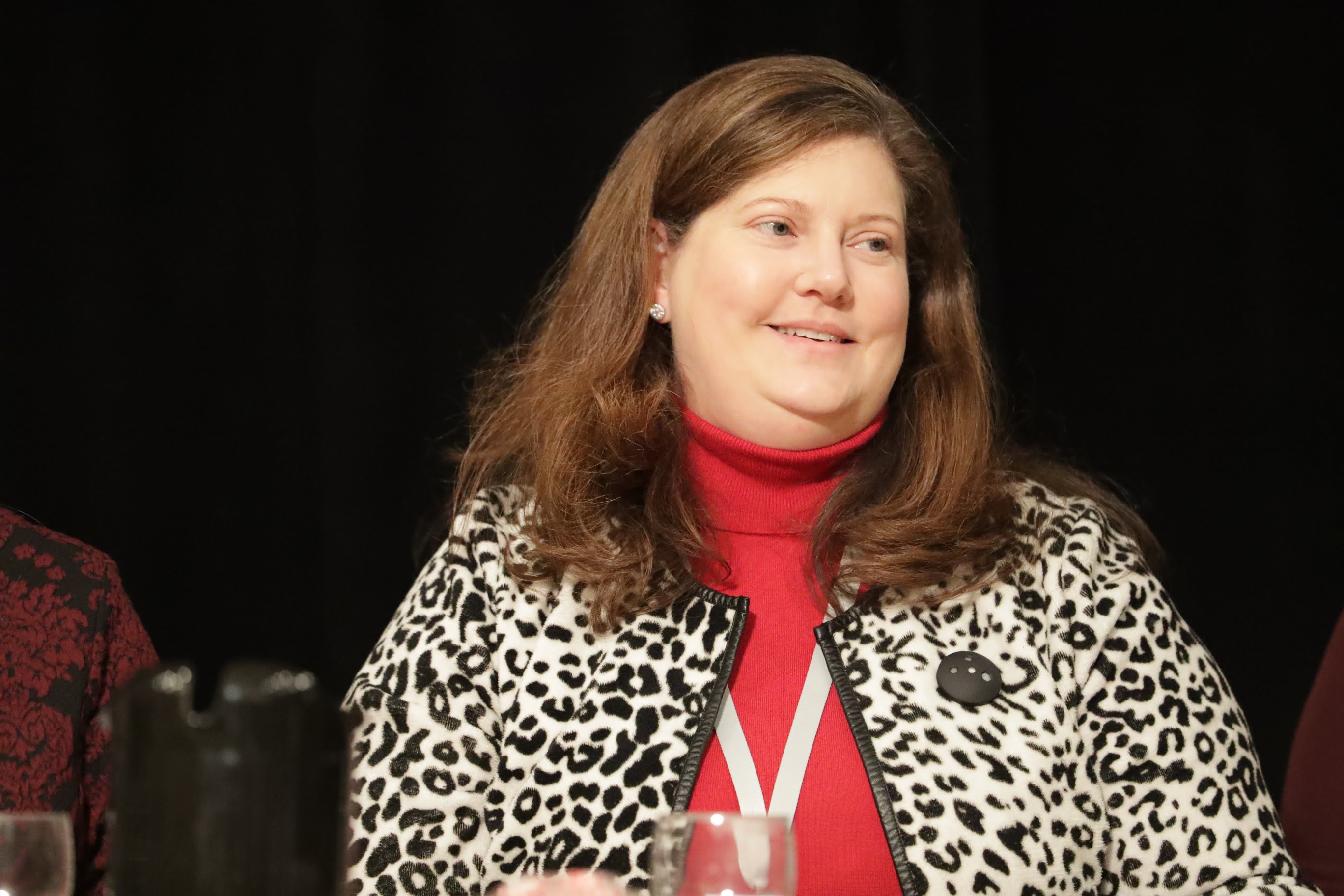What's an inexpensive way to teach tech? Find outside experts, say law school librarians

Elizabeth Farrell Clifford. Photos by Saverio Truglia.
Law school librarians are expected to teach students about technology, and sometimes that requires creativity—especially if deans won’t allot funds to help with that endeavor.
A Friday morning panel at ABA Techshow entitled “Planning for the Future: What’s Next in Teaching Technology,” addressed topics such as ways to approach technology vendors in order to get free or discounted products, and how law professors can be convinced to include technology in nontech classes.
Today, there are many more legal tech products available than when most law professors were in school, said Michael Robak, director of the law library at University of St. Thomas School of Law in Minneapolis.
“I think that now, more than in the past, we have an opportunity to help out a little more,” said Robak, who is also a clinical professor at the school.
But it seems that very few law schools embrace technology, said panelist Faye Jones, a clinical professor at the University of Illinois College of Law where she directs the law library.
“Out of 200 ABA-accredited schools, there are 30 that I would consider [technologically] innovative, and that’s not very many,” Jones said.
If you want more support for teaching technology, Jones said, often the best person to advocate for that with the dean is the faculty member who most recently practiced law.

Faye Jones.
Also, if employers who hired students or recent graduates tell law school deans how wonderful the individuals’ technological skills are, there’s a good chance that the dean will be more open to funding tech education, said panelist Jennifer Wondracek, director of legal education technology at the University of North Texas Dallas College of Law.
“We had three judges reach out to the dean to say how impressed they were that our students were billing time,” she said, mentioning that students at her school get training on Clio billable hour software.
“Getting in the thought process of billing in six-minute increments is hard,” added Wondracek, as is finding vendors who will give law schools products for free or at a greatly reduced cost. “I’d love to see a list out of the academic track of vendors who will work with us,” she said.
Another panelist, Elizabeth Farrell Clifford, suggested bringing in tech-savvy alumni in to speak with classes. Students are interested in hearing about the experiences of someone in practice, and speaking invitations are flattering for graduates, said Clifford, director of the research center at Florida State University College of Law.
“When I get contacted by alumni, I jump at those opportunities,” Clifford said. “I want to hear what they have to say, and figure out how I can get them in my class.”
Kristina Niedringhaus, another panelist, also spoke of bringing in someone from outside of the law school to teach students about technology in practice. Niedringhaus, the associate dean for library and information services at Georgia State University College of Law, said she is starting a new class where she partners with the state bar’s director of practice management.
“She has a much more up-to-date knowledge of what law firms and solos are choosing, and hopefully I can bring a little bit of teaching theory to this,” said Niedringhaus, who is also a clinical professor.

Kristina Niedringhaus.
The panelists also discussed how law professors can include technology in classes generally not seen as focused on technology—for instance, talking about social media as evidence in a criminal law course.
“I do them as inserts, they’re not woven into the curriculum. Someday I would love to see the faculty teaching these things themselves, and the fact there is a fear of doing so is somewhat disturbing,” said panelist Jeannette Eicks, a research professor at Vermont Law School who serves as co-director of its Center for Legal Innovation.
According to Eicks, the best way for law schools to approach technology vendors for a discount is to contact the company’s marketing directors, who want to get the word out about their product.
But it’s also good to find free products for law students, she added, because they may wind up starting their own law practices after graduation.
“Finding the closest way to free as possible is a really nice foundation with helping them start their practices,” she said.
Follow along with our full coverage of the 2018 ABA Techshow



